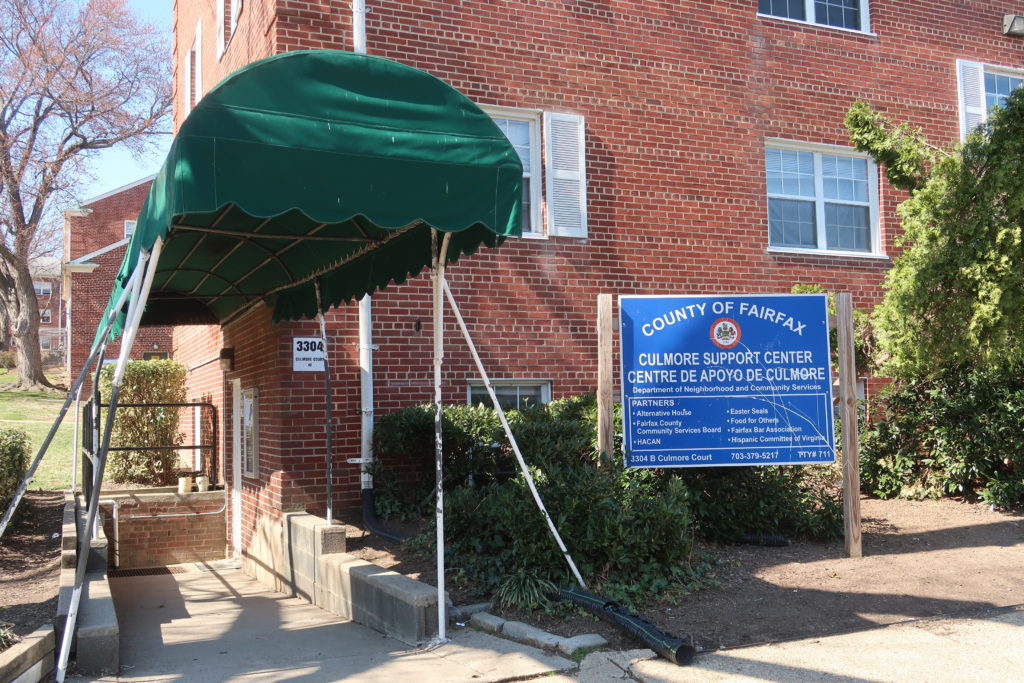Second Story helps teen victims of human trafficking

Human trafficking continues to be a problem in Fairfax County, although it tends to be under the radar.
Most of the recruiting is done online, so parents might not be aware of what is going on, according to a presentation earlier this week by Second Story, an organization that runs the Culmore Family Resource Center.
The resource center hosts programs aimed at preventing teens from getting caught up in sex trafficking and assists those trying to escape.
Sex traffickers target teens
Fairfax County is no. 1 in the nation for gang-related sex trafficking prosecutions, Second Story reports. The average age youths get caught up in sex trafficking is 11 to 14.
Second Story defines human trafficking as “compelling someone into commercial sex or labor through the use of force, fraud, or coercion.” Minors are considered to be victims even if force or fraud isn’t used on them.
Lonely, depressed teens often get ensnared when they post pictures online. In a typical scenario, an older man calls her beautiful, says she could be a model, and invites her over for a photo shoot. He then might force her to have sex.
Recruiters target youths from all backgrounds, including affluent teens who want to prove they are cool and are willing to take risks. Sometimes youths are coerced into “survival sex,” such as when a gay teen is kicked out of the house and agrees to sex for a place to stay.
Traffickers manipulate victims by making them believe they’re in a romantic relationship, “love bomb” them with gifts and affection, and tell unhappy teens they are the only ones who will ever be attracted to them.
Teens get trapped
They also use fraud and coercion to trap youths. As an example, a trafficker might take a teen to a party where they use drugs, then tell the victim they have to pay. If the victim doesn’t have enough money, they ask her to have sex with someone, insisting it’s a one-time thing. It never is.
If victims try to leave the relationship, traffickers often threaten violence, threaten to hurt family members, get victims hooked on drugs, and convince them they will be arrested if they go to the police. They also blackmail victims by threatening to post compromising pictures online.
Related story: ON – Crossroads helps meet the needs of Culmore residents
The Virginia General Assembly considered legislation this year banning the prosecution of juveniles for prostitution, but it died in committee.
Second Story listed several signs that a teen might be involved in sex trafficking:
- problems at school,
- more than one cell phone,
- loss of interest in age-appropriate activities,
- gang involvement,
- secretive about social media,
- substance abuse,
- oversexualized behavior,
- sneaking out or running away, and
- having an older or controlling partner.
Empowering youths
According to Second Story, more than 40 percent of victims are identified as such by family or friends. Community members who suspect someone they know is involved with a human trafficker should call the Fairfax County Domestic and Sexual Violence Hotline, 703-360-7273.
“Young people in this situation are afraid and don’t trust adults,” said Cathy Benn, vice president of residential services at Second Story. “Most don’t think they are being trafficked; they think they have a boyfriend who loves them. They don’t realize they are paying for things with sex.”
“We empower young people to help themselves,” Benn said. “We offer safe spaces where they feel comfortable and safe. We are nonjudgmental.”
Second Story’s human trafficking-prevention program focuses on connecting youths with mentors and role models and educating them about healthy relationships. The group’s Culmore Teen Center helps youths stay out of trouble by offering homework help, field trips, presentations on such topics as cyberbullying and financial literacy, and help with college applications.
Teens don’t want to share information, said Soraya Borja, vice president of community-based services at Second Story. Some parents are reluctant to talk about these issues because they fear deportation. In some cases, parents are still paying the traffickers who brought them to the United States.
Borja said, “Awareness and empowerment are the big challenges.”

